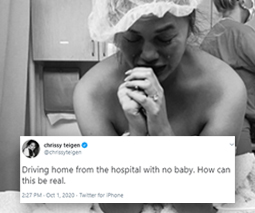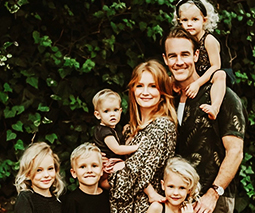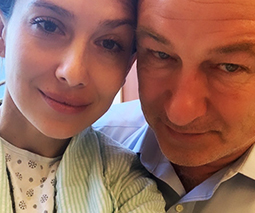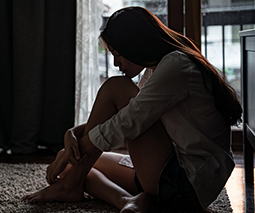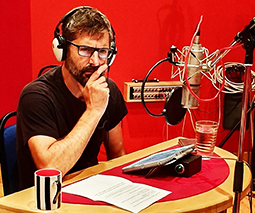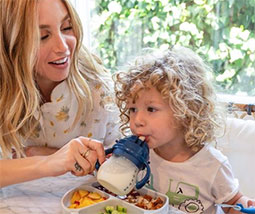You’ve just had a miscarriage – but what happens next?
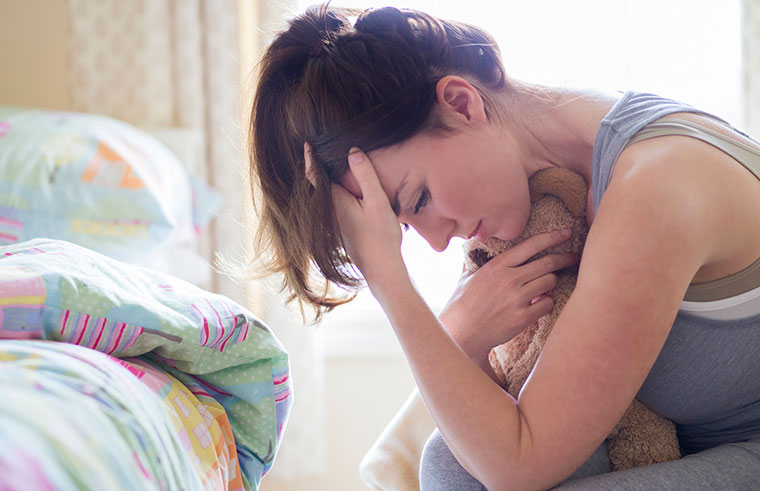
While miscarriage is very much a common occurrence, with one in four pregnancies ending before 12 weeks, it’s still a devastating experience. Having gone through three miscarriages myself, I know how challenging that time can be – and how the challenges don’t simply end, just because the miscarriage is over.
However, a recent collaborative study between the University of Melbourne and the Pink Elephants Support Network has revealed that an enormous number of women are not being given the support they need, and they are receiving no information from healthcare professionals about miscarriage, support services or where they can go for emotional support.
Alarming results
Preliminary results from the study showed that out of the 400 women who responded to a survey about health service support around miscarriage, 75 percent weren’t offered information or leaflets about pregnancy loss organisations in the days following their miscarriage.
59 percent of the women were not offered any information about miscarriage or support services, or any referral for emotional support at all. Of these women, 88 percent would have liked to have received information or leaflets about pregnancy loss support organisations when they miscarried.
A common story
Pink Elephants celebrity Ambassador, actress and director Tahyna MacManus, has gone through three miscarriages and can relate to the survey’s findings. “None of my questions were answered, I was really dismissed, and I just felt like a number in a system, and I felt as though my living and breathing child, to me, was just nothing to them,” she said. “One of the times, I went to the emergency room, and I was told to go get an ultrasound … and I was then told to take a Panadol and just go home and wait for it to end basically.”
Tahyna’s story is not uncommon, and Pink Elephants Support Network co-founder and Director Samantha Payne says that it’s time for women and their partners to receive the support they deserve following an incredibly traumatic loss. “Women and their partners going through miscarriage and infertility can experience really intense periods of emotional distress that can lead to heightened anxiety or depression if left unsupported,” says Samantha. “These survey results should ring alarm bells for caregivers and their peers and communities. Women and their partners need to feel supported and be given the right type of information at the right time.”
Dealing with loss
According to Samantha, we live in a society that doesn’t always like to talk about loss, and so not always best equipped to understand how to help those who need it. “We need to ensure partners, family, friends and even healthcare professionals are all prepared with the right tools to support women, so they don’t get stuck in their grief,’” she says. “Emotional well being and mental health play a vital part in a woman’s recovery journey and having the right options available can give a woman a greater sense of control during a time that can otherwise be fraught with sadness and uncertainty.”
Time to change
In Australia, 103,000 couples report a miscarriage every year, leaving them feeling physically and emotionally shocked and often at a loss as to where to turn for support. Through a combination of online support groups, peer support and emotional support literature, the Pink Elephant Support Networks are providing women and their partners with the validation, empathy and connections they need and deserve specific to early pregnancy loss.
According to Samantha, the survey identifies the gap in linking women with the basic level of support they need; however, the Pink Elephant Support Network can’t reach these woman on its own.
“We are calling on the Federal and State Governments, corporates and generous donors to commit to helping us to support more couples in need, couples who are left feeling isolated, confused and often let down,” she says.
